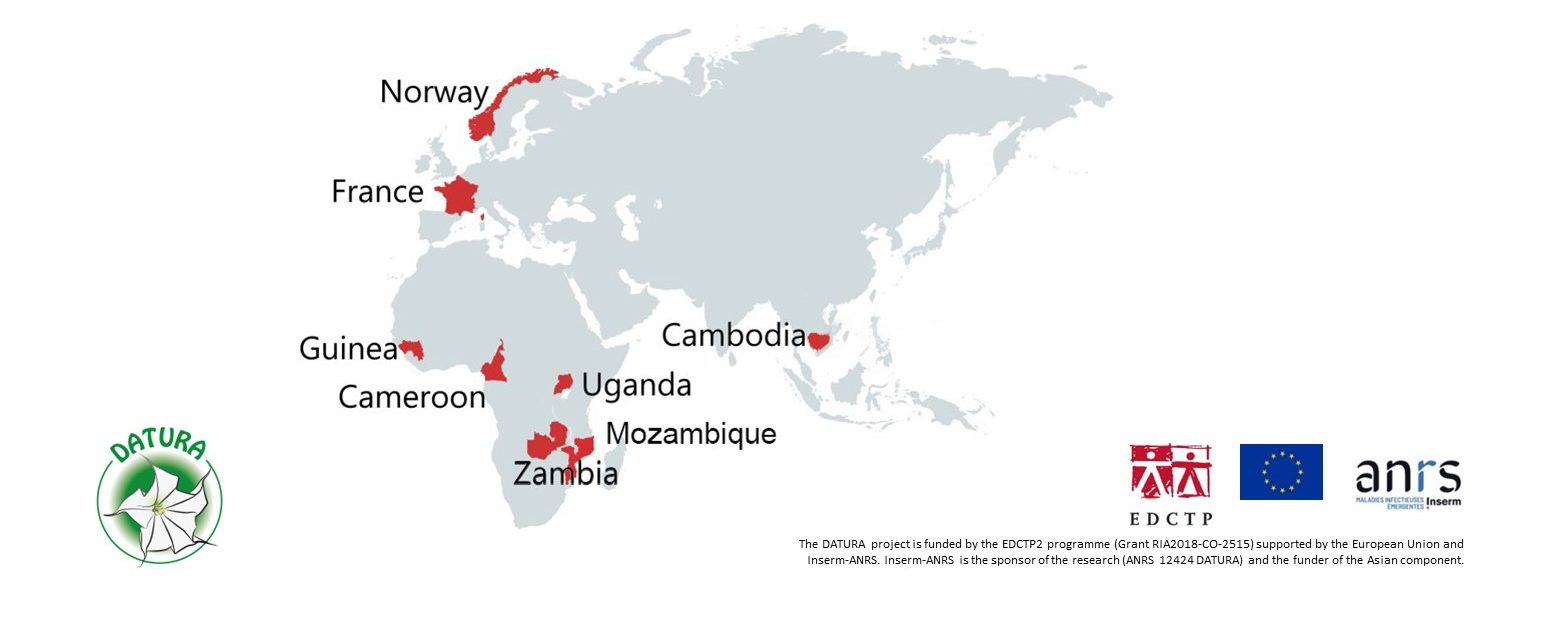Position in DATURA: Project Co-ordinator
Job title: Senior hospital practitioner
Home Institution: Centre Hospitalier Universitaire de Nîmes
ResearchGate link
E-mail: didier.laureillard@yahoo.fr
Dr Didier Laureillard is a medical doctor, and clinician trained in HIV/AIDS. He is currently working in the Department of Infectious and Tropical Diseases of the Nîmes University Hospital. His main scientific interests focus on HIV-related diseases, notably in coinfections as tuberculosis, viral hepatitis or opportunistic infections. He spent more than 15 years overseas (Caribbean islands, Africa and Asia) where he gained a broad experience in HIV/AIDS and coinfections care and research.
- Clinical experience in HIV infection
Since the end of 90’s, Dr Laureillard worked in several clinical departments managing HIV-infected patients. He was thus able to benefit from the experience and teaching of well-known experts. He has participated in the entire evolution of the management of HIV infected patients over the past 20 years. He currently leads a medical team that manages nearly 1000 HIV-infected patients.
- Clinical research expertise
As investigator of more than 20 clinical trials and large-scale cohorts (5 ongoing studies), Dr Laureillard has a large experience in clinical research. Since 2014, he has been involved in the “Pathogenesis and Control of Chronical Infection” research team within INSERM U1058, at the Etablissement Français du Sang, Montpellier University. In March 2017, he replaced Pr Françoise Barré-Sinoussi as the coordinator of the ANRS Vietnam research site and has experience in scientific coordination, notably networking, training and capacity building. He is a member of several scientific groups in ANRS called “Actions Coordonnées” and is a member of the scientific board of the University Hospital of Nîmes.
- Expertise in managing HIV program in resource limited settings
Dr Laureillard worked for more than 10 years as medical doctor, medical coordinator, head of mission in difficult settings with Médecins Sans Frontières (MSF). After one year working in MSF headquarters in Paris, he moved in 2001 to Cambodia to initiate one of the first worldwide program of initiation of antiretroviral treatment (ART) in a resource limited country. Before the first WHO guidelines, before the creation of the Global Fund, he developed in an integrated management model for thousands of HIV-infected patients in public health settings in Cambodia.
- Coordinator of the ANRS 1295/CPRA KH001 DAIDS-ES 10425 CAMELIA trial
During his stay in Cambodia, tuberculosis emerged as an additional complication in these patients. For Dr Laureillard, this was the most important clinical problem among severely immunocompromised HIV-infected patients. It had a mortality rate well over 35% in hospitalised cases. It was at this time that he and his colleague and friend Pr FX Blanc developed the ANRS 1295 CAMELIA trial, which demonstrated a 34% mortality reduction with an early initiation of ART after the onset of TB treatment among severely immunocompromised patients.
- Co-principal investigator of the ANRS 12290 STATIS
Despite a dramatic increase in the access to ART in low-income settings, many HIV-infected adults still present for care with severe immunosuppression. In such late presenters, mortality following ART initiation is high and tuberculosis remains a major cause of death. After the CAMELIA trial, Dr Laureillard participated as Co-PI to develop a new trial, called STATIS for Systematic empirical vs. Test-guided Anti-tuberculosis Treatment Impact in Severely immunosuppressed HIV-infected adults initiating ART with CD4 cell counts <100/mm3. The first results of STATIS were presented at CROI 2018.
